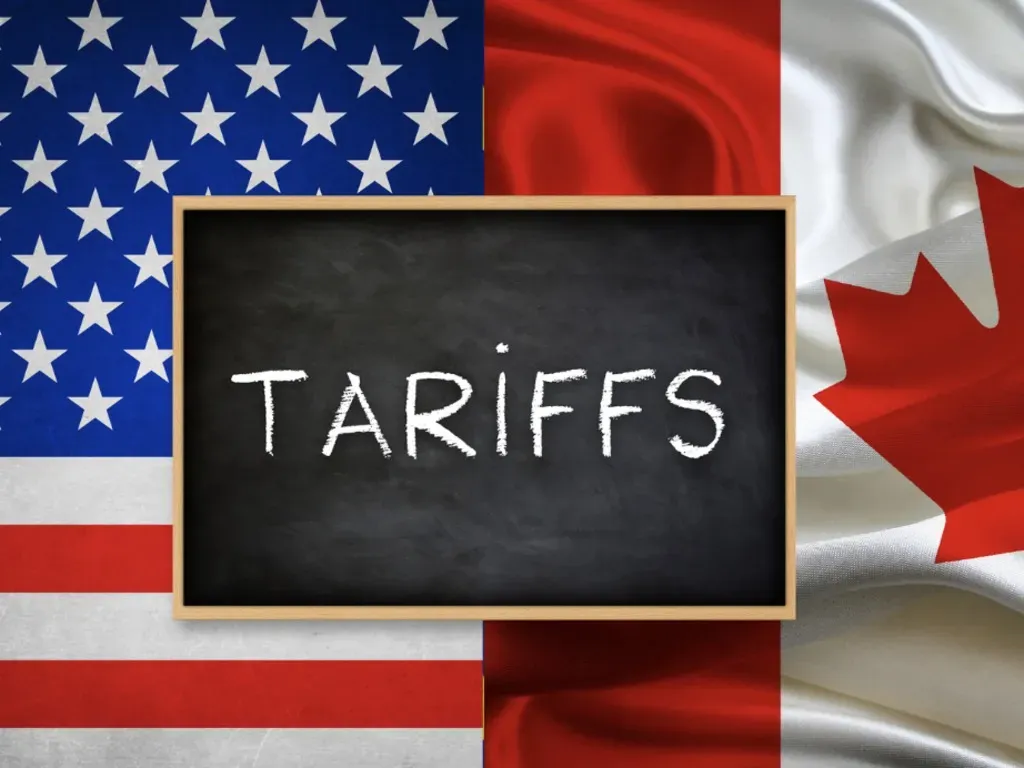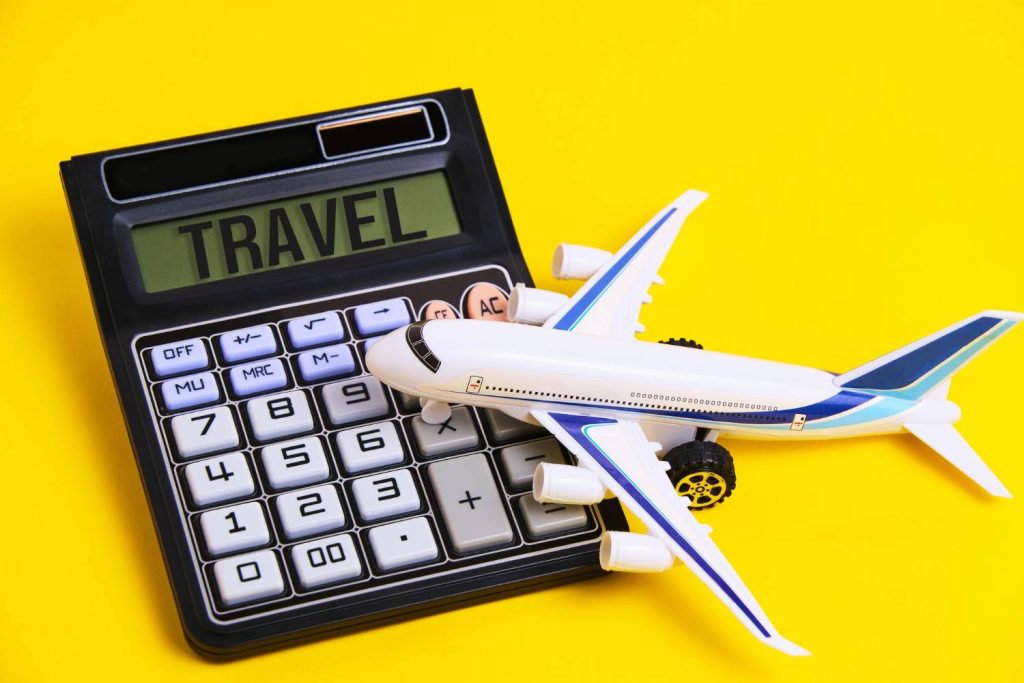Business travel tariffs have emerged as a significant factor impacting the dynamics of corporate travel. As we head towards 2025, a pronounced decline in business travel is anticipated due to rising economic uncertainty and fluctuating tariffs that disrupt established travel patterns. Recent findings from the Global Business Travel Association highlight a staggering drop in confidence among industry professionals, with optimism plummeting from 67% to a mere 31% within just a few months. The survey, backed by over 900 travel experts, underscores the tangible effects of tariffs, including rising travel costs, which have prompted a reevaluation of travel policies across borders. While the immediate outlook appears grim, there might be opportunities on the horizon as companies adapt to these changes and seek new avenues for collaboration.
Corporate travel costs have become increasingly influenced by trade regulations and pricing structures, signaling a shift in the landscape of professional travel. As businesses navigate economic shifts, a notable trend is the reevaluation of travel budgets amidst a backdrop of lingering tariffs and market fluctuations. Insights from industry surveys reveal a growing concern over travel policy adjustments, alongside anticipated spending cuts for employee travels due to uncertainties. While the global business travel scene has encountered challenges, including potential declines in travel confidence and increased operating costs, the pursuit of new markets continues to spur opportunities for engagement. This landscape is evolving rapidly, demanding that businesses stay attuned to both global trends and local policy shifts.
The Impact of Tariffs on Business Travel
Tariffs have a profound impact on business travel trends, creating both challenges and opportunities. As tariffs rise, the cost of travel increases, compelling companies to reconsider their travel budgets and policies. Higher travel costs can lead to a decline in business trips, as organizations seek to minimize expenses during uncertain economic periods. This shift is significant, as a recent survey indicated that 28% of business travel buyers are planning to reduce employee travel in response to heightened costs.
Moreover, the impact of tariffs is not limited to direct costs; they also affect the overall confidence in the business travel industry. As economic uncertainty grows, so does pessimism among travel professionals. The decline in optimism—from 67% to just 31%—reflects deep concerns about the future of global business travel, indicating that companies must navigate a complex landscape that includes evolving tariffs alongside shifting market dynamics.
Business Travel Tariffs and Economic Uncertainty
As economic uncertainty looms in 2025, the implications for business travel tariffs are becoming increasingly apparent. Organizations are grappling with the decision of how much they can allocate for travel costs amidst fluctuating economic conditions. With a significant portion of travel buyers indicating that they are changing travel policies due to tariffs, businesses may find themselves having to adapt quickly to remain competitive and functional in their respective markets.
The current economic climate has led to concerns about inflation, which has a ripple effect on travel expenses. This leads to a cycle where increased tariffs result in heightened travel costs, potentially diminishing the frequency of business travel. Companies that once prioritized face-to-face meetings and travel for negotiations may find themselves opting for virtual alternatives, thereby impacting the overall dynamics of international business relations.
Global Business Travel Trends in 2025
Despite the challenges posed by tariffs, global business travel in 2025 is expected to showcase resilience. The market is projected to surpass $1.6 trillion by the end of the year, demonstrating a rebound in spending compared to previous years. Travel professionals are optimistic that despite the decline in travel volume since the pandemic, companies are beginning to value in-person interactions again as they navigate new market relationships and partnerships.
However, it’s essential to address the underlying factors contributing to this trend. The decline in travel confidence can be attributed to the complexities surrounding tariffs and their subsequent economic impacts. Travel professionals are also particularly wary of visa processing challenges and increased travel costs—54% of those surveyed expressed concerns about rising travel expenses, indicating a significant barrier that could stifle the potential recovery of global business travel.
Navigating Increased Travel Costs
With increasing tariffs, companies are experiencing a surge in travel costs that has become a key concern for business travel professionals. A staggering 54% of respondents cited worries about rising expenses, which could directly hinder corporate travel budgets. As businesses strive to maintain employee welfare while trimming operational costs, many are reevaluating their travel policies and exploring cost-effective alternatives.
In addition to the direct costs of travel, ancillary expenses such as accommodations, meals, and transportation also contribute to overall travel expenditure. The cumulative effect of these cost increases means that companies may limit the number of trips or seek to capitalize on technology for virtual meetings. This strategic adaptation might be crucial for ensuring operational efficacy amidst a fluctuating economic landscape.
Long-term Projections for Business Travel
Looking toward the future, despite the immediate challenges, projections for the global business travel market remain promising. The market is anticipated to grow significantly, potentially exceeding $2 trillion by 2028, contingent on resolving the adverse effects of tariffs. Travel professionals are hopeful that as companies adapt to the new normal, there is potential for innovative solutions that could define new business travel practices.
Nevertheless, several factors could influence these projections, such as stability in international relations and the resolution of economic uncertainties. The stability of business travel tariffs will play a pivotal role in this evolution. A positive adjustment to tariffs could pave the way for increased travel, renewed confidence in the marketplace, and ultimately, the resurgence of face-to-face business engagements.
Opportunities Amidst Tariffs
Interestingly, while many view tariffs as a detrimental factor for business travel, there is a silver lining. As companies reassess their client relationships due to the impacts of tariffs, there may be an increase in business travel as organizations seek new partners and untapped markets. This shift could lead to interesting developments in travel needs and preferences, as businesses pivot to remain competitive.
This aspect of opportunity extends beyond merely adjusting travel routes; it also involves embracing novel locations for business engagements that may have previously been overlooked. Regions outside of traditional markets could offer fresh avenues for growth, compelling business travelers to explore new territories that had not been previously on their radar.
The Role of Technology in Business Travel
In the face of ongoing uncertainties surrounding tariffs and travel costs, technology is emerging as a crucial ally for corporations. Many businesses are leveraging online platforms for meetings and conferences, which serve as alternatives to traditional travel. This shift not only helps maintain productivity but also cuts costs significantly, providing a buffer against the financial strain imposed by tariffs.
Additionally, advancements in travel technology can support businesses in making informed decisions about travel arrangements. Data analytics and travel management systems can aid companies in optimizing their itineraries, identifying cost-saving opportunities, and improving overall travel efficiency. By integrating technology into their travel strategies, businesses can navigate the complexities of tariffs and economic unpredictability more adeptly.
Visa Processing Challenges and Solutions
Visa processing challenges represent a critical hurdle that businesses face in today’s travel environment. With 46% of business travel professionals expressing concern over visa delays and complexities, the ability to secure timely travel documentation becomes paramount for organizations looking to facilitate international business trips. The ever-shifting landscape of regulations due to tariffs only exacerbates these issues, making it crucial for businesses to stay informed and agile.
To address these challenges, companies can invest in professional services that specialize in visa procurement and compliance. By doing so, they can streamline the application process and minimize delays that could disrupt travel plans. This proactive approach not only enhances operational efficiency but also underscores the importance of being prepared in a landscape where tariffs impose additional layers of complexity.
The Future of Face-to-Face Business Interactions
Despite the increase in virtual meetings and remote work, face-to-face business interactions remain invaluable. Many industry experts argue that in-person engagements can foster stronger relationships and enhance trust among partners. As companies reassess their travel strategies in light of tariffs and economic uncertainties, the necessity for in-person meetings may lead to a resurgence of business trips, albeit with more intentional and strategic planning.
Looking ahead, companies might prioritize critical trips that necessitate personal interaction, thereby redefining the landscape of business travel. These shifts in approach will be crucial in adapting to future trends while still capitalizing on the enduring value of in-person connections.
Frequently Asked Questions
How are business travel tariffs impacting the industry in 2025?
The business travel tariffs are significantly impacting the industry by contributing to a decline in travel optimism. In 2025, as economic uncertainty rises, many travel professionals are adjusting their travel policies due to these tariffs, which are disrupting global business travel and affecting spending patterns.
What is the projected decline in business travel due to tariffs by 2025?
Business travel is expected to decline in 2025, with many professionals predicting reduced travel spending and policy adjustments, primarily influenced by the impact of tariffs on travel decisions and overall confidence in the market.
What global business travel trends suggest about tariffs and travel costs?
Current global business travel trends show that tariffs are causing travel costs to rise, with over half of travel professionals concerned about increasing expenses. While tariffs exert pressure, slight decreases in global airfares indicate a complex balance between cost and availability.
How does economic uncertainty and travel tariffs affect business travel professionals?
Economic uncertainty, compounded by travel tariffs, has led to a significant decline in confidence among business travel professionals, with many indicating a cautious approach to future travel requirements and a potential decrease in employee travel.
What are the long-term impacts of tariffs on business travel growth?
The long-term impacts of business travel tariffs could result in a slower recovery of travel volumes, yet the market is forecasted to reach over $1.6 trillion by 2025 if tariffs do not excessively hinder growth, indicating potential resilience within the industry.
| Key Points | Details |
|---|---|
| Decline in Business Travel | Business travel is expected to decline in 2025 due to economic uncertainty and a drop in confidence. |
| Impact of Tariffs | Tariffs and stricter U.S. border policies are significantly affecting travel confidence among professionals. |
| Survey Findings | 67% of optimism in Nov 2024 dropped to 31% in April 2025 as per a survey of over 900 travel professionals. |
| Changes in Travel Policies | 1/3 of buyers are adjusting their policies regarding U.S. travel. |
| Pessimism About the Industry | 25% of respondents in major regions feel pessimistic about future business travel prospects. |
| Shift in Travel Needs | 28% of buyers expect to reduce employee travel, while 20% are unsure on future travel needs. |
| Potential New Opportunities | Despite challenges, rising tensions may lead to new business trips as companies seek new partnerships. |
| Long-term Concerns | 54% worried about increasing travel costs, 46% about visa processing challenges. |
| Global Market Outlook | Estimates suggest that the market could exceed $1.6 trillion by 2025 and over $2 trillion by 2028 if challenges are managed. |
Summary
Business travel tariffs are significantly reshaping the landscape of corporate travel as we move towards 2025. The recent downturn in optimism among travel professionals highlights the challenges posed by economic uncertainties and trade disputes. However, the potential for new market opportunities and the projected growth of the global business travel market signal that adaptation and strategic planning can mitigate the impacts of these tariffs.



